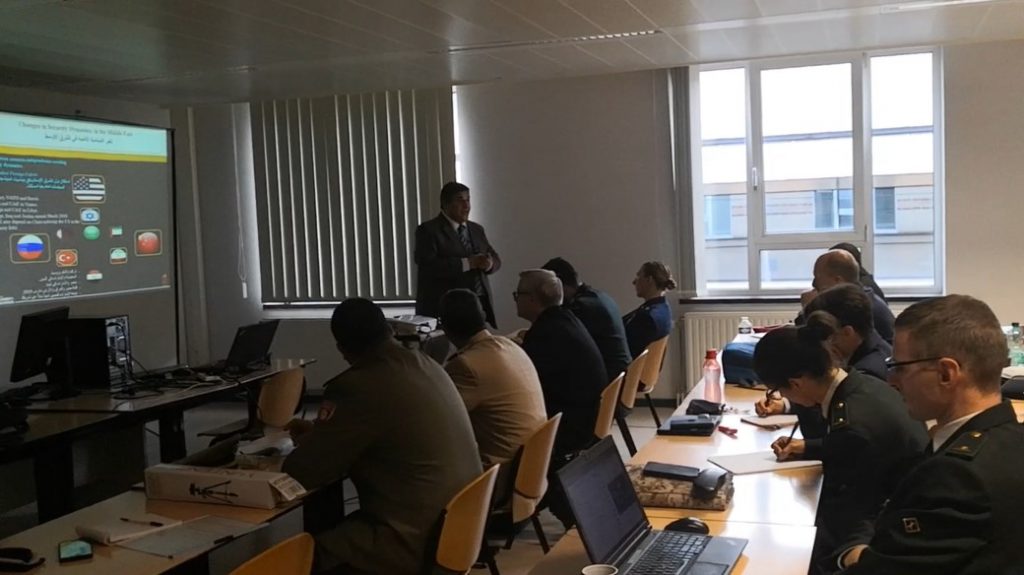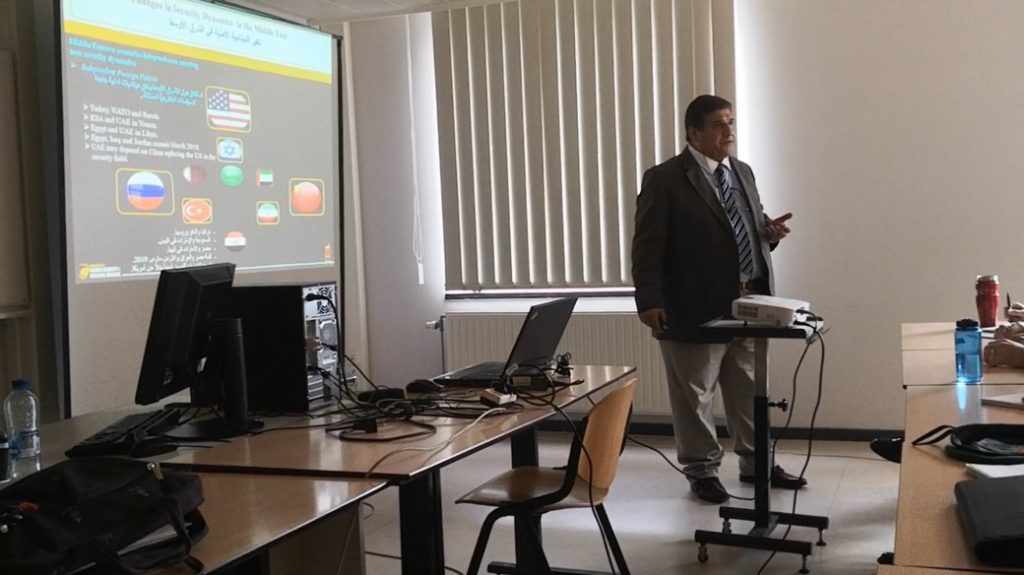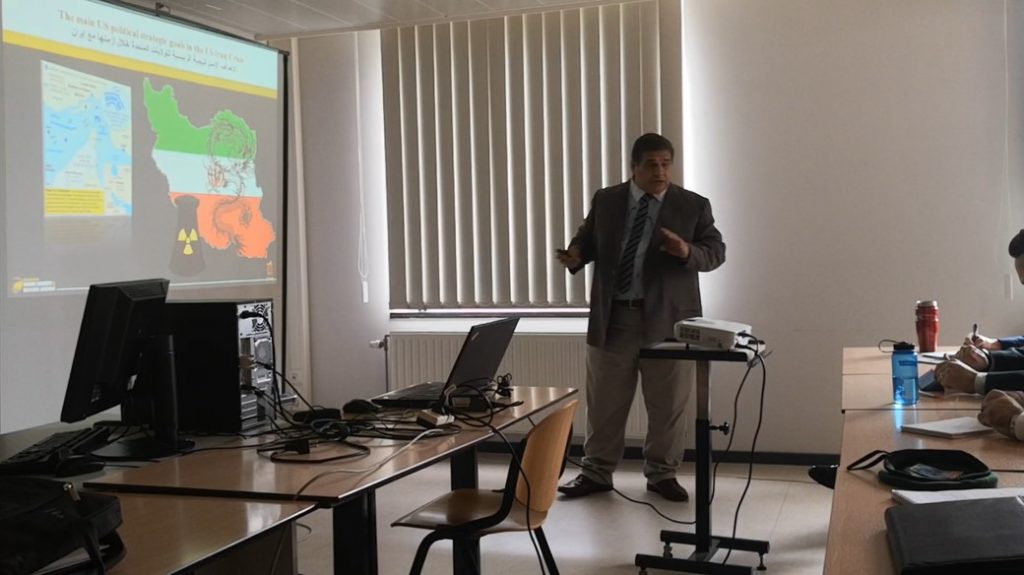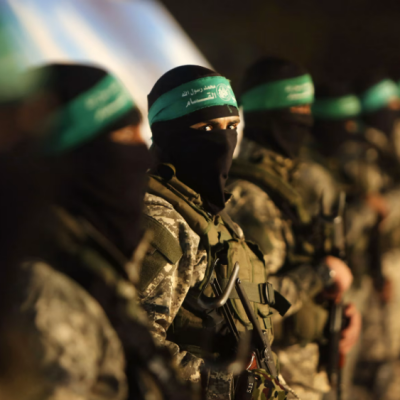Upon invitations from the Royal Military Academy in Brussels and the European Union Military Staff Headquarters, Major General (Retired). Sayed Ghoneim, (Chairman, IGSDA) gave a lecture twice in both places in English
on Friday 13 September and Monday September 16. His lecture in both places titled “Rivalries between major powers in the Middle East: Risks and Opportunities in New Security Dynamics and ramifications on Europe”.
The first lecture was given to the students of the Belgian General Command & Staff College and to Senior Management faculty at the Royal Military Academy in Brussels with a total of 32 senior officers from Belgium, France, Germany, the Netherlands, Luxembourg, Switzerland, Morocco, Tunisia, Lebanon, Niger, Mali, Rwanda, the United States and Canada.
The lecture lasted three and a half hours, including 75 minutes speech by Gen. Ghoneim, 15 minutes break and 90 minutes Questions and answers. He presented his views on the rivalries in the Middle East between three major powers (the United States, Russia and China) and between regional powers and actors, and the features of new security dynamics, addressing the risks and opportunities in the region, then he finished with the ramifications on Europe and his strategic recommendations. This was followed by discussions with students on the related issues and possible solutions.
During his lecture, Ghoneim focused on the national security strategies of the United States, Russia and China, as well as Iran, Turkey and Israel, and their expansionist goals that increase instability in the region.
He reviewed the most important new security dynamics and variables, including the Turkish transformation towards Russia, the possibility of some regional powers and regional actors turning transforming towards China, and some countries starting to become independent from the US.
He also pointed to the need to anticipate the growing rivalry for influence in the region between the United States and Russia and the prospects of increasing presence of China as well as the prospects for the presence of India and Japan in the future.
Finally, Ghoneim asked for discussion, receiving several invaluable questions from the students around the topic pf the lecture.







